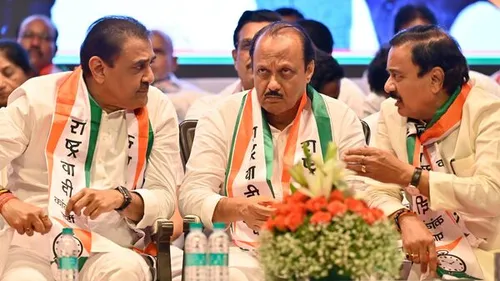Leader
Ajit Pawar, a prominent leader in Maharashtra politics, recently made headlines with his statement expressing disinterest in contesting the upcoming Maharashtra Assembly elections. This remark has sparked considerable discussion and speculation in political circles, raising questions about his future plans and the impact on the state’s political landscape.
Table of Contents
Background and Context
Ajit Pawar, a key figure in the Nationalist Congress Party (NCP), has been a significant player in Maharashtra politics for many years. Known for his strong leadership and influential role in the state government, his decisions and statements carry substantial weight. His recent comment about not being keen on contesting the upcoming Assembly polls has therefore generated widespread attention and speculation.
This statement comes at a time when Maharashtra is gearing up for its Assembly elections, a crucial event that will shape the state’s political future. Given his prominent position within the NCP and his history of leadership roles, Ajit Pawar’s decision could have far-reaching implications.
Potential Motivations Behind the Remark
There are various theories about why Ajit Pawar might have made this statement. Some political analysts suggest that this could be a strategic move to assess the political climate and gauge public and party reactions. By expressing disinterest, he might be positioning himself for a more significant role in the party’s strategy or seeking to influence the selection of candidates.
Another perspective is that Ajit Pawar could be considering a shift in his political career, possibly moving away from state politics to focus on a broader national role. As a seasoned politician, he may be evaluating his options and determining where he can have the most impact, especially as the NCP navigates its future in a rapidly changing political landscape.
Reactions from Political Circles
Ajit Pawar’s statement has not gone unnoticed by his colleagues and political rivals. Within the NCP, there is likely to be a mix of reactions, ranging from surprise to concern. For party members who view him as a strong leader capable of winning elections, his potential absence from the Assembly polls could be seen as a setback. On the other hand, some might see this as an opportunity for new leadership to emerge within the party.
Opposition parties are also likely to view this development with interest. Ajit Pawar’s absence from the election could alter the dynamics of the electoral contest, potentially making it easier for rival parties to gain ground. His decision may lead to recalculations in campaign strategies, as his influence in the state is well recognized.
Impact on Maharashtra Politics
If Ajit Pawar indeed chooses not to contest the Assembly elections, it could lead to significant shifts in Maharashtra’s political landscape. As a senior leader with considerable experience and a strong following, his absence from the polls could create a vacuum that other leaders within the NCP will need to fill. This could also lead to changes in the party’s approach to the election, with new candidates or alliances being considered to maintain its position in the state.
Furthermore, his decision could influence voter sentiment. Ajit Pawar has been a familiar face in Maharashtra politics for many years, and his choice to step back could prompt voters to reassess their loyalties. This could open up opportunities for other parties to make inroads in constituencies where the NCP has traditionally been strong.
The Road Ahead for Ajit Pawar
While Ajit Pawar’s remark has sparked speculation, it is essential to consider that in politics, statements can sometimes be part of a larger strategy. It is possible that his comment is not a definitive decision but rather a calculated move to explore options and test the waters. As the election date approaches, there could be further developments or clarifications from Ajit Pawar regarding his intentions.
If he does decide to focus on a different role, whether within the NCP or on a broader national platform, it could mark a new chapter in his political career. Given his experience and influence, Ajit Pawar’s future moves will be closely watched by both his supporters and political observers.
Conclusion
Ajit Pawar’s recent statement about not being keen to contest the Maharashtra Assembly elections has undoubtedly stirred the political landscape. While the motivations behind his remark remain a topic of speculation, its impact on the NCP and Maharashtra politics could be significant. Whether it is a strategic move, a signal of shifting priorities, or a genuine expression of disinterest, Ajit Pawar’s decision will play a crucial role in shaping the upcoming elections and the future of the NCP in Maharashtra. As the political environment continues to evolve, his next steps will be pivotal in determining the direction of his career and the broader political dynamics in the state.








